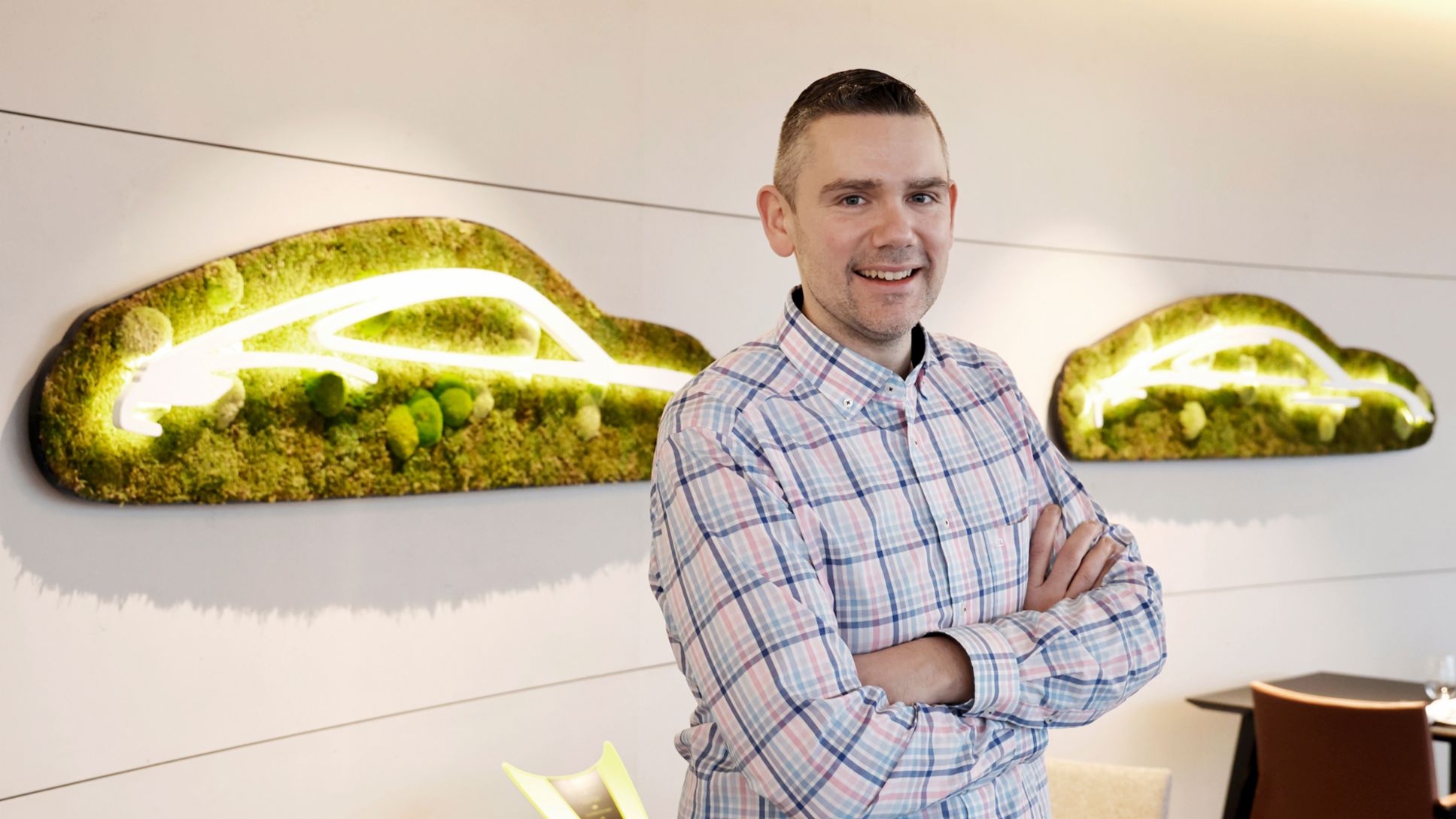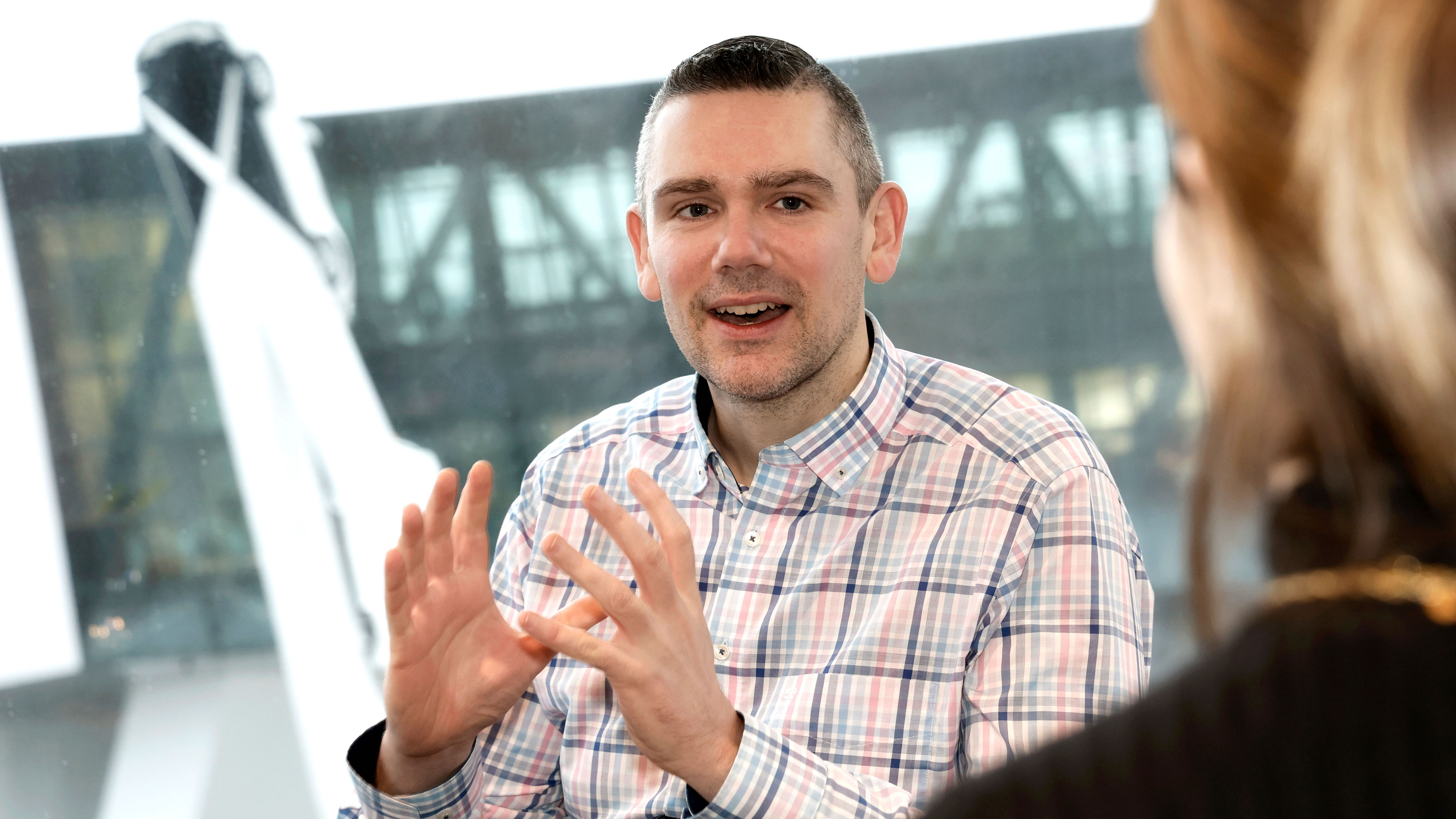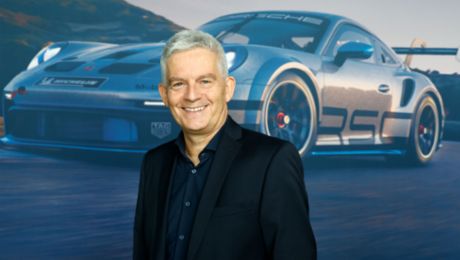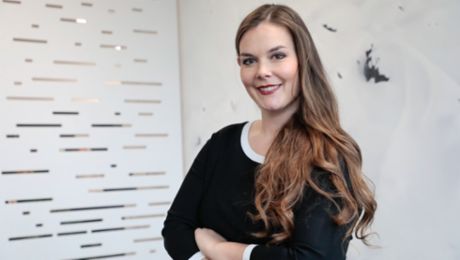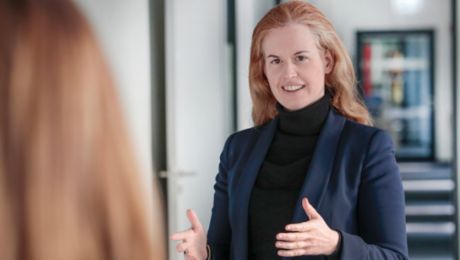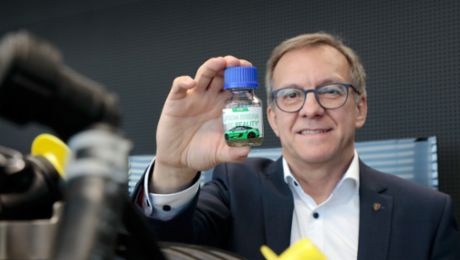Felix, where does your passion for catering come from and how do you relate to sustainability?
Felix Schultheisz: As a trained chef, I have been working in the catering industry for a long time and I am also very interested in nutrition in my daily life. I attach great importance to fresh and healthy food: for example, I grow my own vegetables in my garden and pay attention to the environment while doing so. In my job as a quality manager in Porsche Gastronomy, I am made aware of the ecological effects that can arise in the food value chain – for example through CO₂ emissions in food production, transport or storage. That's why I want to make a positive difference and do my bit to reduce the environmental impact of the Porsche Gastronomy.
In Porsche Catering, you cater not only for employees, but also for guests and customers. What does this encompass and what are your tasks?
Felix Schultheisz: Our focus is on providing meals for employees at our Porsche locations in Germany. This includes managing our 15 employee canteens as well as our self-service shops. We also cater for internal events and major public events such as the Porsche Tennis Grand Prix. The Porsche Museum with its restaurant and our customer center in Leipzig complete our gastronomic offer. In my position, I am responsible for coordinating menus and recipes – with a particular focus on regional products. In addition, we monitor compliance with food hygiene regulations and plan quality processes. Our aim is to create a catering service that not only inspires with culinary delights, but also embodies regionality, quality and sustainability.
How can you increase the quality of your offerings while simultaneously reducing the ecological footprint of Porsche Gastronomy?
Felix Schultheisz: We believe that a culinary concept based on sustainability can increase the quality of our food offerings and have defined four areas of action for this purpose: food, consumables, communication and operating resources. In turn, we have clustered each individual area of action into various key topics. As a team, we have already achieved real success regarding food. In cooperation with the initiative "United Against Waste", we have taken measures to reduce food waste by up to 50 percent. This was achieved, among other things, by optimizing our orders, preparation and food distribution, comparable to the demand-driven just-in-time production of our vehicles. In the area of consumables, we have introduced biodegradable cleaning agents in all areas. We have also installed new dishwashers for our operating resources, which can reduce water consumption, the use of detergents and overall energy consumption.
Let's take a closer look at your "food" area of action: In 2022, you were awarded the first level of the "Schmeck den Süden“ quality seal by the German state of Baden-Württemberg. What does this mean for Porsche Gastronomy and your guests?
Felix Schultheisz: This award emphasizes our close partnership with regional suppliers, which enables us to reduce transport routes and therefore also CO₂ emissions. This seal is also proof of quality for our guests, as our direct suppliers must fulfil strict requirements as quality label holders of the state of Baden-Württemberg. These include requirements regarding the product value chain, such as regionality, animal welfare and plant production. We also carefully examine delivery notes, warehouses and menus on a regular basis. At Porsche as well as our direct suppliers, fulfilment is audited once a year.
What impulses can you give Porsche employees to eat in an environmentally conscious way?
Felix Schultheisz: In our staff canteens, around eight to ten thousand employees are provided with food every day – so they play an important role when it comes to driving forward decarbonization at the Porsche Gastronomy. As part of this, my colleague Linea Rettberg as coordinator for food safety and I have introduced what is known as CO₂ scoring on the menu. Each purchased item is evaluated in terms of its assumed CO₂ emissions across its entire value chain. This results in a total amount of emissions per dish. Taking portion size and nutrient density into account, the dish is then compared with the average meal in German-speaking countries and displayed in color on the digital menus in the company cafeterias. A yellow cloud corresponds to the average, while a red or green cloud represents an above-average or below-average amount of CO₂ emissions. In this way, we want to sensitize our employees to environmentally conscious nutrition.
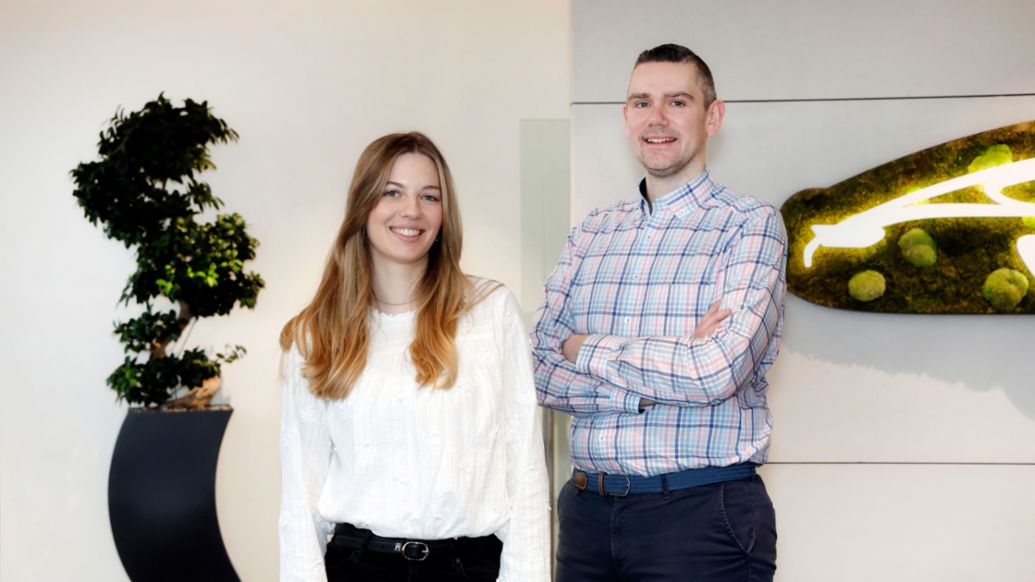
What are your wishes for the future?
Felix Schultheisz: In general, I would like to see more appreciation for food and food quality in our society, because good and healthy food is not a matter of course everywhere. At the Porsche Gastronomy, I am delighted to see how guests accept our ideas and try new things. Their positive feedback and willingness motivate us to continue this path and launch further initiatives for more ecological sustainability, because every measure, every success and every step forward is based on a joint team effort. At the same time, direct feedback also helps us to constantly develop and improve. We don't want to force anyone to change their eating behavior, but rather create new offers and point out alternatives. My message is clear: sustainability doesn't have to be a sacrifice.
Info
In the interview series "Perspectives on Sustainability", Porsche employees talk about their specialist subject areas. The interview with Felix Schultheisz is part 10 of the series.
